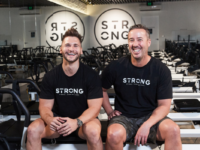Did you know that as a business owner your values, ethics and in some cases, your political views effect whether or not customers purchase from your company?
Think about it. No one wants to be associated with a brand whose founders are involved in scandalous activities, demonstrate poor ethics or a lack of community values.
Today, people are looking to business leaders to inspire, to lead and make a positive impact in both business and the community.
What’s the best way to tell people what you value as a leader and as an organisation? By sharing our story. For most of us, the prospect of talking about ourselves and not our company can be daunting, so keep it simple.
Start slowly. The objective here is to build trust, to create an authentic and honest relationship with your customers. The purpose of sharing your story is to create a genuine connection with your customers and excite them with your passion for your brand and your products!
Most of us did not start our business to generate news about ourselves, but the fact is today more than ever the behaviours and actions of founders and CEO’s weigh heavily on brand reputation.
As a female founder and CEO in the manufacturing industry, raising my own personal profile is important because my personal values guide the values of Pakko. I see every opportunity to talk about my experience as a chance to inspire young women from diverse backgrounds to believe in themselves and to follow their dreams.
It’s a chance to use your voice, your story to empower others.
Our stories have power. They can change the way people see us in business and when we share our stories, we can create moments that can change lives.
Now, you’ve decided you want to share your story – where do you start? Here are a few simple tips you might consider:
- Define your personal story
As a Founder or CEO your personal story has the ability to positively impact many people. The foundation of any personal story is authenticity.
You can’t fake it. Tell the truth, be honest and be passionate.
Did you have experience in your industry? Talk about your family, your education, your life and what brought you to where you are today.
For example, my story is based on my journey into packaging and my lack of experience in the industry! I also share my background, my family story and my how my cultural heritage has influenced the way I do business. - Where to tell your story?
Why not start out with a blog?
Once you have written your blog, post it on your website.
Don’t just leave it there though!
Post a link to your blog content onto all your social media pages
If you send out a newsletter add a link to your blog in your newsletter
Give your customers a chance to relate to you, to comment and to really be a part of your community. - Reach out and connect
As your story develops a following, you might seek out traditional media opportunities. Check out: newspapers, industry publication, online sites, magazines, radio or podcasts that are interested in small businesses or small-business leaders.
Find outlets that are relevant to your brand, your business, your story and your consumers.
Try following the individuals who run the programs on the social media or connect with them on LinkedIn. Once you develop a connection you may be able to share your story with them! Like all things, this takes time, so be patient.
As business leaders it’s up to us to engage with our customers, to listen to them, and to cultivate a community where we can continually learn from each other. Start sharing your story today!
Author: Nina Nguyen, founder and CEO of packaging company Pakko. She is an advocate for equality, diversity and inclusion in the workplace and the community.
This article was first published on Inside Small Business, a sibling publication to Inside Franchise Business Executive.

















